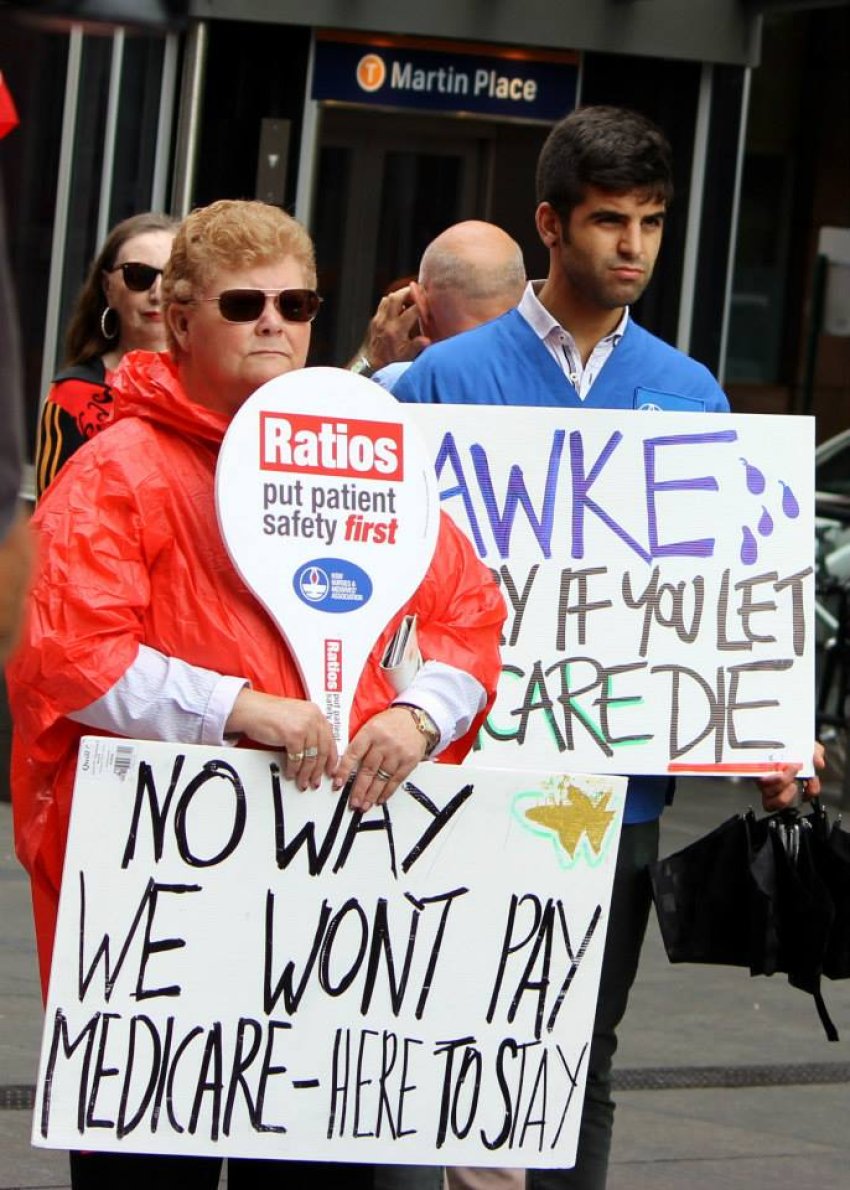
The federal Coalition government’s reforms to private health insurance confirm its blind allegiance to a system most people do not support.
Most people prefer a universal public healthcare system, but ever since Medicare was introduced in 1984, successive governments have sought to divert public funds to the private health insurance sector.
The government spends about $6 billion annually on private health insurance rebates. Singles earning up to $140,000 and families earning up to $180,000 receive rebates of between 8.4% and 33.4%, depending on age and income.
Given that healthcare is chronically underfunded and under-resourced, subsidising ever increasing private health insurance premiums is an appalling misuse of public funds.
The lack of public support for private health insurance becomes obvious when the numbers are crunched.
In June, 44.2% of people had basic private hospital cover. This represented a 0.3% decline over the past financial year, meaning 28,359 fewer people took out private health insurance cover. The largest decline was among young people aged 20-24.
The number of people taking out private insurance would be even less if not for the government’s lifetime health cover (LHC) initiative, and would be closer to the 30% level it was prior to the policy’s introduction in 2000.
LHC penalises those who do not take out private hospital cover before turning 31. If someone decides to sign up for private health cover after that, they can expect to pay at least a 2% LHC loading on top of their insurance premiums for every year that they are over 30.
The loading rate goes higher the older you are: 20% for those over 40, 40% for those over 50, and a maximum loading of 70%.
Promoting private healthcare as a “competitive market” ignores the fact that the industry is held together largely by taxpayer subsidies and penalties on those who have not taken out insurance earlier in life.
Since April, there have been new efforts to get more people to take out private health insurance.
These include: a standardised grading system for private hospital cover; waiving waiting periods for mental health services for those who upgrade their cover; and providing the Private Health Insurance Ombudsman with greater investigative powers.
The effort to standardise and better regulate an industry that has frequently rorted consumers is overdue.
The other reforms mandated in April — discounts to attract young adults who pay for their premiums but do not utilise their cover, and allowing consumers to trade-off lower premiums in exchange for higher excesses — are revenue-raising gimmicks for the private sector.
But no reform can ultimately fix an inherently broken system.
And none of these measures are about making healthcare affordable and accessible for all.
Most people believe that everyone should have a right to healthcare, regardless of whether they can afford it.
They want their sick, elderly and financially struggling friends and family members to be able to receive quality care when they need it, because that is what they want for themselves.
They want a public healthcare system that is properly funded, even if this sometimes means contributing more, because they know this model can deliver healthcare far better than for-profit, private companies ever will.
It’s time the people were heard.